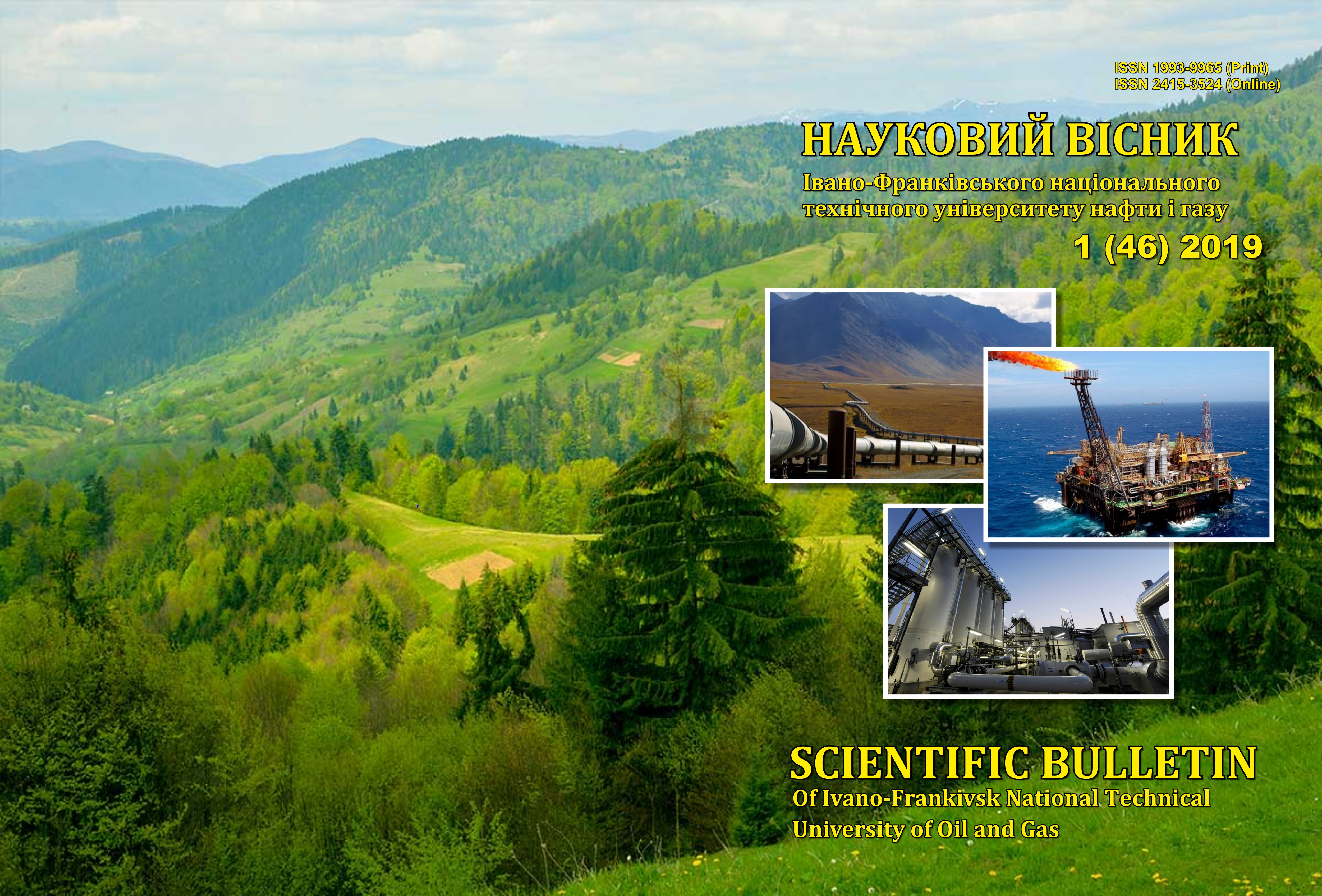SIMULATION OF WEAR OF THE CHRISTMAS TREE CHOKE ELEMENTS
DOI:
https://doi.org/10.31471/1993-9965-2019-1(46)-53-61Keywords:
choke, saddle, nozzle, wear, fraction, simulation.Abstract
The effectiveness of the use of machinery and equipment in the oil and gas industry is impossible without solving the problems associated with improving the wear resistance of their components and parts.
One of the types of equipment that is subject to intensive wear is the elements of the gushing fittings (valves, chokes, etc.). During operation, the throttle locking elements (tip and nozzle) are subject to the destructive influence of the working environment, as a result of which hydro and gas-dynamic wear of the tip and nozzle occurs. As a result, it becomes impossible to control the flow of a well.
The aim of the work is to use simulation modeling to study the wear process of the elements of the choke of the Christmas tree fittings to determine the areas that are the most worn, taking into account the size of abrasive particles in the gas stream.
According to the results of simulation, it was found that the size and place of maximum wear of the throttle elements is different, depending on the size of the grains of sand. The amount of wear on the throttle tip is 15 mm/year, and most of all, it is not the tip that wears, but the nozzle (46 mm / year). It was also found that the amount of wear of the surfaces located in front of the nozzle, compared with the wear of the tip and the nozzle, is much less, and is 3 mm/year.
Based on the above simulation algorithm and the obtained results, the model of an adjustable choke can later serve as a basis for its subsequent research, namely: optimizing the tip cone to reduce the amount of wear of the tip itself; studies of the effect of speed and pressure drop on the amount of wear of the throttle elements; design optimization.
Downloads
References
Fedorovych Ya. T. Mashyny ta obladnannia dlia vydobutku nafty i hazu : navch. posib. Ivano-Frankivsk: IFNTUNH, 2015. 344 р.
Shulga V. G., Buhalenko E. I. Ustevoe oborudovanie neftyanyh i gazovyh skvazhin: spravochnaya kniga. M. : Nedra, 1978. 235 р.
Boiko B. C. Rozrobka ta ekspluatatsiia naftovykh rodovyshch : pidruchnyk. 3-ye dopov-nene vydannia. Kyiv : Real-Prynt, 2004. 695 p.
Klasyfikatsiia koroziinykh umov ekspluatatsii hazokondensatnykh rodovyshch HPU "Kharkivhazvydobuvannia" za kontsentratsiieiu ioniv zaliza [Tekst] / A. P. Melnyk, L. D. Shashora, Ya. I. Senyshyn, Ya. M. Slesar, L. F. Nykyforova, H. O. Khomenko. Pytannia rozvytku hazovoi promyslovosti Ukrainy. Kharkiv, 2002. Vyp. XXX. Р. 88–94.
Babaev S. G., Zilberman L. I. Prichiny nizkoj dolgovechnosti i harakternye vidy razrushenij detalej fontannoj armatury. Mashiny i neftyanoe oborudovanie. 1968. No 8.
Radkevych O. I., Chumalo H. V., Yurke-vych R. M. Koroziino-mekhanichna povedinka zakhysnykh pokryviv zapirnoi armatury obladnannia naftohazovykh rodovyshch. Fizyko-khimichna mekhanika materialiv. 2009. Tom 45. No 6. р. 117-121.
Popov V. S. Znosostiikist splaviv, vidnov-lennia ta zmitsnennia detalei mashyn: navchalnyi posibnyk. Zaporizhzhia : VAT «Motor Sich», 2006. 420 р.
Alyamovskij A. A. SolidWorks Simulation. Kak reshat prakticheskie zadachi. M. : BHV, 2012. 445 p.
Downloads
Published
How to Cite
Issue
Section
License
Авторські права....


1.png)

















